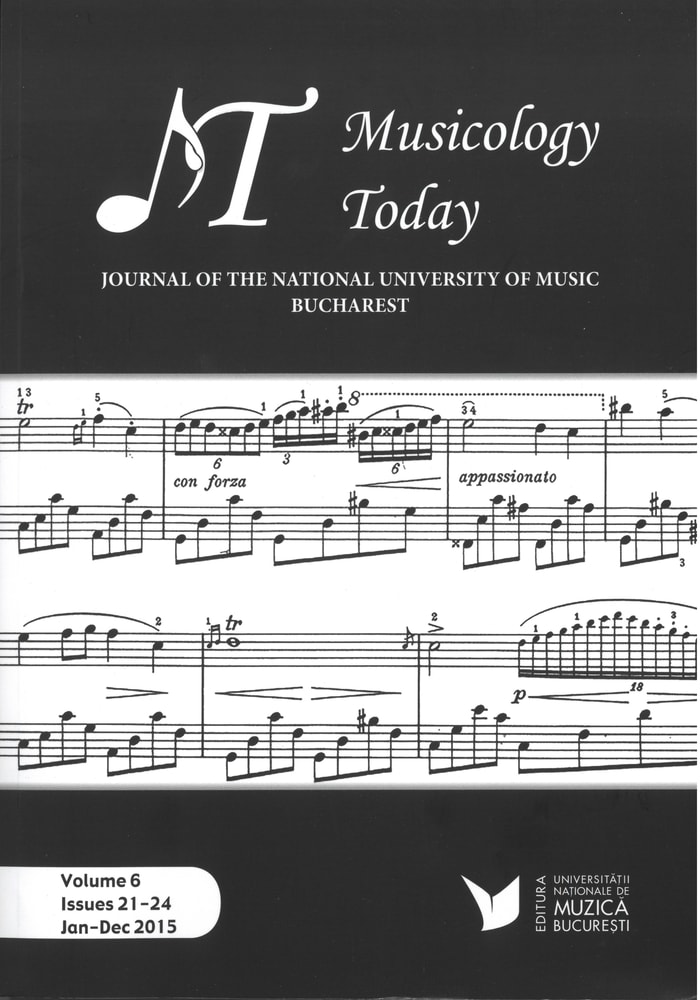The European Musical Canon between Hypothesis and Concept
The European Musical Canon between Hypothesis and Concept
Author(s): Oleg GarazContributor(s): Marcella Magda (Translator)
Subject(s): Music
Published by: Editura Universității Naționale de Muzică din București
Keywords: European Musical Canon; archetypal meanings; canonical phenomenon;
Summary/Abstract: As an alternative to the traditional approach to the thematization of the musical canon (Kerman, Weber, Citron), this papers undertakes a cross-section analysis of the archetypal meanings associated with the canonical phenomenon. Even if the formulation of the canon as concept involves at least three constituent elements – the repertoire, the restorative relationship with the past and the normative-referential attitude, this purely technical vision needs to be counterpoised by the elucidation of some epicentral supra-meanings, deeply anchored in the collective imaginary. The focus on the three modernities of the European musical culture – the Renaissance, the Enlightenment and Modernism, reveals a gallery of preferential mythological themes which are respectively and canonically associated to each modernity – the myth of Orpheus, the myth of Prometheus and the myth of Oedipus. A continuation of this emblematic series facilitates the identification of a fourth archetype, of musical postmodernism – the myth of Proteus. The relationship to the archetypal symbolism thus provides an ultimate confirmation of the value of the analytical assertions. By regarding these archetypes as idioms of the artistic language and imaginary of a cultural epoch, as ideological levers and, at the same time, as determinant, generative energies of the thematic choices, the process of formation of the artistic musical canon appears in a much clearer light.
Journal: Musicology Today: Journal of the National University of Music Bucharest
- Issue Year: 6/2015
- Issue No: 22
- Page Range: 23-42
- Page Count: 20
- Language: English

